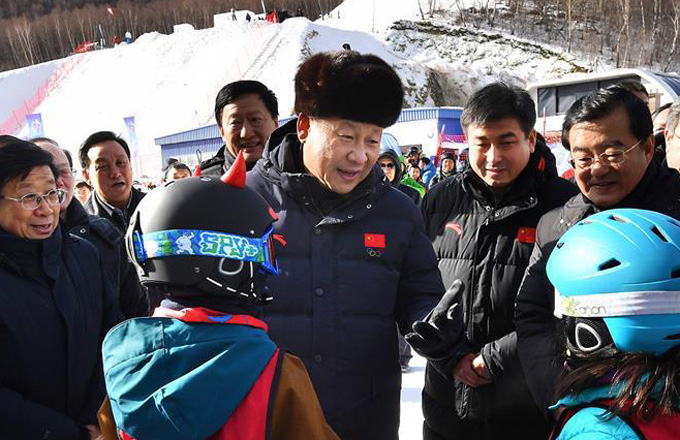Electronic revolution in motion
Corporate battle
Not surprisingly, internet service providers are vying for the biggest piece of the e-sports pie by developing new games, purchasing overseas titles and hosting events.
Boasting a vast user base and a plethora of social-media platforms, internet giant Tencent has become the most influential and profitable e-sports entity in China.
The company now operates seven professional leagues, such as the KPL and LPL, which cover the six major gaming genres, including MOBA (multiplayer online battle arena games) and FPS (first-person shooters).
The company, which derived 46 percent of its 2016 revenue from its online gaming segment, signed an agreement with Wuhu, Anhui province, in May to build an e-sports hub before unveiling a plan in October to invest at least 30 million yuan to build a media center in Shanghai to provide livestreaming feeds for 10 broadcasting partners.
"The successful operation of major e-sports leagues by Tencent has provided a benchmark in the industry and we are pushing it forward in streaming distribution, gamers' management and clubs' commercial operations," said Zhang Yijia, director of Tencent Interactive Entertainment's mobile e-sports department.
Alisports, the sports arm of e-commerce behemoth Alibaba, has also jumped on the bandwagon after launching the Alisports World Electronic Sports Games last March - touted as the world's highest paying e-sports series with 1,200 events planned across 15 Chinese cities and offering a total prize purse of $5.5 million.
In April, Alisports announced a strategic partnership with the Olympic Council of Asia to jointly add e-sports as an official medal event in the 2022 Asian Games in Hangzhou, where Alibaba has its headquarters.
Talent search
There are no shortage of gamers, but, with e-sports evolving exponentially, the industry is experiencing a talent shortage at other levels of its operation.
According to the E-sports Industry Talent Supply and Demand Survey released by Tencent, only 15 percent of the positions within the industry have sufficient human resources.
The survey also revealed that, until 2020, the industry will need to fill a total of 570,000 positions in league management, media production, data mining, commentating and training.
In September 2016, the Ministry of Education listed "E-sports and Management" as a major for colleges, paving the way for higher-education institutes to offer e-sports-related courses and official diplomas.
Starting from the beginning of this year, the Communication University of China has added an e-sports-dedicated subject entitled "digital media art", aimed at developing gaming management and design talent.
The renowned Shanghai Theater Academy, meanwhile, is offering an e-sports commentating course, starting from the fall semester. Forty students have enrolled in the major.
Contact the writers at shifutian@chinadaily.com.cn













